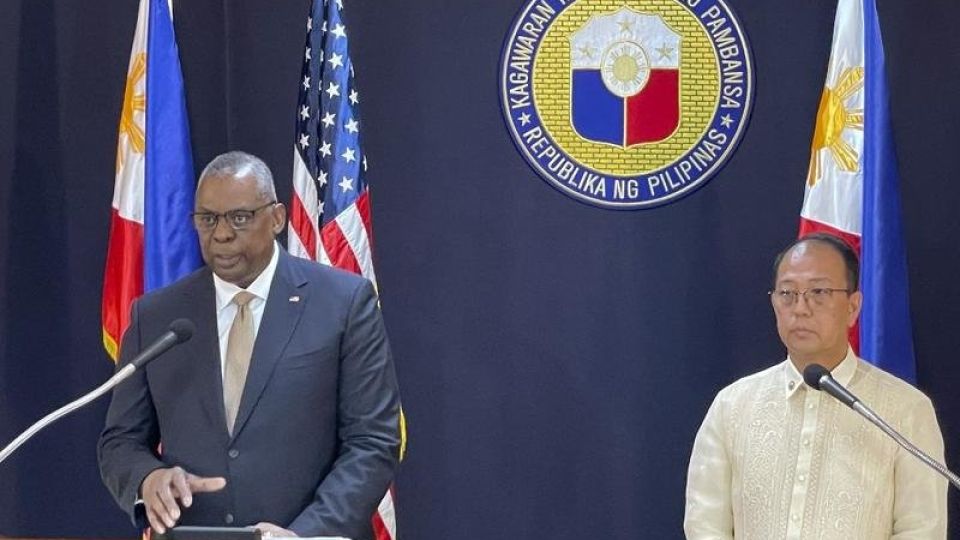February 16, 2023
BEIJING – Planned military deal with Japan, US draws harsh criticism from analysts
Experts are urging countries to remain vigilant and avoid being coerced by others after the Philippines and Japan signed a military deal and after Manila belatedly began pointing an accusing finger at Beijing over a maritime incident on Feb 6.
“Tokyo’s sinisterness behind this can hardly escape blame,” said Liu Qingbin, former professor at the Institute of Advanced Sciences at Yokohama National University in Japan.
On Monday Manila was urged not to take action that may exacerbate disputes and complicate the situation after a Philippine Coast Guard vessel made an unauthorized intrusion into the waters off China’s Ren’ai Reef in the South China Sea
Those in the region should be aware of the Cold War mentality of Japan and the United States, he said, which puts countries in the line of fire and forces them to pick sides.
On Monday Manila was urged not to take action that may exacerbate disputes and complicate the situation after a Philippine Coast Guard vessel made an unauthorized intrusion into the waters off China’s Ren’ai Reef in the South China Sea.
“We hope the Philippines will respect China’s territorial sovereignty and maritime rights and interests in the South China Sea and avoid taking any actions that may exacerbate disputes and complicate the situation,” said China’s Foreign Ministry spokesman Wang Wenbin.
Restrained way
The remarks came after Manila on Monday accused China of targeting a Philippine Coast Guard vessel with a laser on Feb 6.
The vessel intruded into waters off the Ren’ai Reef without Chinese permission, but the Chinese Coast Guard acted in a professional and restrained way, and the two countries were communicating about the matter through diplomatic channels, Wang said.
“It (China’s reaction) is in accordance with China’s domestic law and international law, including the United Nations Convention on the Law of the Sea.”
Manila leveled its accusation a week after the incursion, and coinciding with the end of a five-day visit by its president to Japan during which the two countries signed a military cooperation agreement.
It allows the armed forces of Japan and the Philippines to work together for “disaster relief”, often a precursor to allowing countries to deploy forces on each other’s soil.
Liu said it is a consensus that military and security collaboration between countries needs to be conducive to regional peace and stability and not targeted at or harmful to the interests of any third party, but the new pact between Manila and Tokyo does not seem to be in that spirit.
What is more disturbing for the region is that the Philippines said it is also considering a trilateral military pact with the US and Japan after signing separate deals with the two.
Ferdinand Romualdez Marcos Jr had said he would exercise care in pursuing a pact with Tokyo and Washington, but the pact has come in for criticism.
Lila Pilipina, a civil organization fighting for justice for Philippine sexual slavery victims of the Japanese army during World War II, said it “staunchly opposes” the planned security pact because it has “the possibility of the Philippines being used as cannon fodder”.
Anna Malindog-Uy, vice-president of the think tank Asian Century Philippines Strategic Studies Institute in Manila, said: “Filipinos should be very vigilant about the triad or trilateral defense and military pact between the Philippines, Japan and the US being cooked up targeting China. This is a recipe for disaster. It will provoke militarization of the Philippines and the wider Asia-Pacific. The Philippine government should be more prudent.”
Renato Redentor Constantino, a political analyst in Manila, said: “National defense is more effectively upheld if the Philippines revisits its own history instead of behaving like a supplicant and entering a panoply of Visiting Forces Agreements with former invaders like Japan and the US. Adopting a vassal-state-for-all posture will not promote defense. A Japan that is rearmed and remilitarized should alarm Southeast Asia. Instead, we see Philippine foreign policy adrift once again without compass and rudder.”


